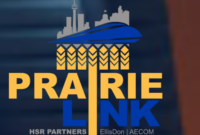Texas High-Speed Rail Proposal Receives Two Key Federal Approvals

Texas Central's high speed rail project is based off Japan's Shinkansen system, pictured above.
Photo courtesy Texas Central
A proposal to build a privately funded 240-mile high-speed rail line connecting Dallas and Houston has gained two regulatory approvals, with the Federal Railroad Administration issuing its final Rule of Particular Applicability and Record of Decision for the estimated $20 billion privately backed project.
The first approval provides the regulatory framework for project developer Texas Central Railroad LLC and establishes a comprehensive set of safety requirements governing its proposed use of the Central Japan Railway Co.’s Tokaido Shinkansen high-speed rail system. Included are technology-specific requirements for signal and trainset control, track, rolling stock, operating rules and practices, system qualifications and maintenance.
According to Texas Central, the framework “incorporates accident avoidance measures that are significantly more stringent than those required for conventional U.S. rail operations.”
The second approval completes a six-year environmental review process, following publication of the final environmental impact statement earlier this year. The approved alignment calls for stations at yet-to-be determined sites in Dallas, the Brazos Valley near Bryan/College Station and Houston.
The approvals provide some momentum for Texas Central, which earlier this year paused its plans and laid off more than two dozen employees as a result of the coronavirus pandemic’s disruptive effects on global financial markets.
The company now expects work on the project to get underway in the first half of 2021, with Webuild, formerly Salini Impregilo/Lane Construction Corp., under contract to provide civil infrastructure design and construction services for viaduct and embankment sections, track system installation and facilities. Bechtel will serve as program manager.
Texas Central President and CEO Carlos Aguiar says while the project’s primary team members are in place, “each partner will solicit subs and deliver on their respective piece of the project" in compliance with company policies on business and workforce opportunities.
Also yet to be resolved is a long-running legal battle over Texas Central’s standing to operate as a railroad with eminent domain rights.
Although Texas Central has control of more than 600 parcels of land needed for the project, landowners are challenging a May state appellate court decision upholding the company’s authority to access other properties along the route for surveys and possible parcel acquisition. The case is now before the Texas Supreme Court, with oral arguments yet to be scheduled.




